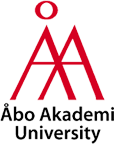In Finland, the degree of qualified teachers is equivalent of a second cycle degree in the European higher education area (300 ECTS). The Finnish initial teacher education has a long tradition of developing a research-based professional orientation for the future students. This includes critical scientific literacy and the ability to use research methods to identify, analyse and find evidence-based solutions on the profession related questions they may face in their future work. Meeting linguistic and cultural diversity is one of such issues.
One way to raise awareness about linguistically sensitive teaching (LST) in teacher education/among student teachers is to start asking questions about the phenomenon. Currently, there are four Master Theses in progress focusing on the local project data collected at Åbo Akademi University. In January, a first Master Thesis project on Listiac data was completed. In their Master Thesis, student teachers Benjamin Frilund and Sara Malin at Åbo Akademi University used the Listiac survey to ask future class teachers about their conceptualization of LST as well as their experiences of LST during teacher education and during observations in classrooms within teacher practicum.
To frame their study, Benjamin and Sara identified different definitions of LST and language awareness in Finnish and European steering documents for education and in research studies within the field. During their search for a definition of LST, Benjamin and Sara discovered several layers of definitions and the importance of developing preparedness for LST among different actors in education as a long-term vision. They note that linguistic diversity and interculturalism in society call for LST as a critical component of teacher professionalism, and they highlight that they as teachers in future have a crucial role in passing on and developing views on diversity among their pupils. Thus, in their profession, Benjamin and Sara hope to contribute to create a linguistically sensitive school, where different languages and cultures are equally valued and viewed as additive resources. Likewise, they perceive LST as a means to develop an open-minded and permissive school in which all pupils regardless of their language background have equal opportunities to be successful.
Altogether, 21 student teachers from Swedish-medium teacher education programmes at Åbo Akademi University and University of Helsinki responded to the LIstiac survey and voiced their conceptualisations about LST. Results show that LST and language aware teaching were defined in a variety of ways, and half of the respondents had no experiences of their own about LST. Interestingly enough, the lack of LST experience did not hinder them to express a very positive attitude towards making use of LST-oriented teaching methods in their future profession.
Alongside with the variability of definitions on LST, Benjamin and Sara conclude that the respondents’ mentionings about individual courses that has embedded LST, indicate that the implementation of LST within the Swedish-medium class teacher education programmes in Finland is still somewhat irregular and based on individual courses and would need a more systematic and regular inclusion during the five-year teacher training programme.
Read the thesis here, or listen to Benjamin and Sara presenting their study (both in Swedish):

Written by Mari Bergroth and Siv Björklund
Åbo Akademi University, Finland



